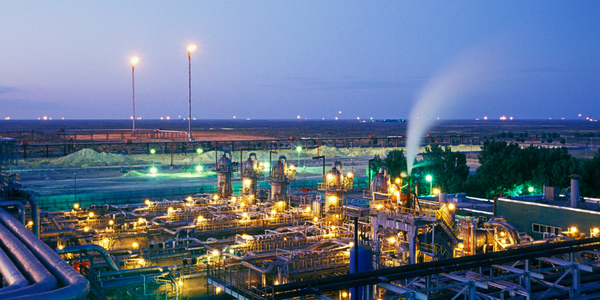Customer Company Size
Large Corporate
Region
- America
Country
- Argentina
Product
- SpheraCloud Corporate Sustainability (SCCS)
Tech Stack
- Cloud-based solution
Implementation Scale
- Enterprise-wide Deployment
Impact Metrics
- Environmental Impact Reduction
- Cost Savings
- Productivity Improvements
Technology Category
- Platform as a Service (PaaS) - Data Management Platforms
Applicable Industries
- Oil & Gas
Applicable Functions
- Business Operation
Use Cases
- Energy Management System
- Regulatory Compliance Monitoring
Services
- Cloud Planning, Design & Implementation Services
- System Integration
- Training
About The Customer
YPF is a leading energy company based in Buenos Aires, Argentina. Founded in 1922, the company operates in the energy, oil and gas, and petroleum refineries sectors. With a revenue of $14 billion, YPF employs around 17,000 people. The company is committed to enhancing transparency and providing stakeholders with a clearer view of their environmental and carbon data. To achieve this, they initiated a project to replace their technologically obsolete and Excel-based collection system with a cloud-based solution.
The Challenge
YPF, a leading energy company, was looking to enhance transparency and provide stakeholders with a clearer view of their environmental and carbon data. Their existing collection system was technologically obsolete and Excel-based, which made it difficult to aggregate environmental emissions related to waste & water management and biodiversity data into a single repository. They wanted to transition from a manual process with separated data streams to an automated and unified reporting solution. The goal was to improve key performance indicators (KPIs) in sustainability, increase transparency for audit trails and provide more reliable data for stakeholders and investors.
The Solution
YPF selected SpheraCloud Corporate Sustainability (SCCS) as their solution of choice. SCCS helps businesses respond to multiple ESG reporting frameworks, comply with new regulations, conduct complex emissions calculations and gain insights that can improve corporate sustainability performance. Sphera and ERM collaborated with YPF–first in the design process, to ensure that the solution was configured specifically for their requirements. Leveraging ERM’s deep expertise in sustainability and local regulations and Sphera’s flexible platform, YPF launched their digital transformation. ERM also completed the implementation in Spanish, providing peace of mind through their local presence. After implementation, ERM provided change management support that helped YPF transition to new data collection and validation processes. ERM trained the YPF team and optimized the processes for maximum efficiency and effectiveness.
Operational Impact
Quantitative Benefit

Case Study missing?
Start adding your own!
Register with your work email and create a new case study profile for your business.
Related Case Studies.

Case Study
Taking Oil and Gas Exploration to the Next Level
DownUnder GeoSolutions (DUG) wanted to increase computing performance by 5 to 10 times to improve seismic processing. The solution must build on current architecture software investments without sacrificing existing software and scale computing without scaling IT infrastructure costs.

Case Study
Remote Wellhead Monitoring
Each wellhead was equipped with various sensors and meters that needed to be monitored and controlled from a central HMI, often miles away from the assets in the field. Redundant solar and wind generators were installed at each wellhead to support the electrical needs of the pumpstations, temperature meters, cameras, and cellular modules. In addition to asset management and remote control capabilities, data logging for remote surveillance and alarm notifications was a key demand from the customer. Terra Ferma’s solution needed to be power efficient, reliable, and capable of supporting high-bandwidth data-feeds. They needed a multi-link cellular connection to a central server that sustained reliable and redundant monitoring and control of flow meters, temperature sensors, power supply, and event-logging; including video and image files. This open-standard network needed to interface with the existing SCADA and proprietary network management software.

Case Study
Refinery Saves Over $700,000 with Smart Wireless
One of the largest petroleum refineries in the world is equipped to refine various types of crude oil and manufacture various grades of fuel from motor gasoline to Aviation Turbine Fuel. Due to wear and tear, eight hydrogen valves in each refinery were leaking, and each cost $1800 per ton of hydrogen vented. The plant also had leakage on nearly 30 flare control hydrocarbon valves. The refinery wanted a continuous, online monitoring system that could catch leaks early, minimize hydrogen and hydrocarbon production losses, and improve safety for maintenance.










